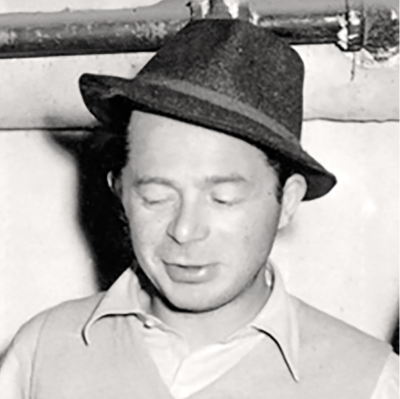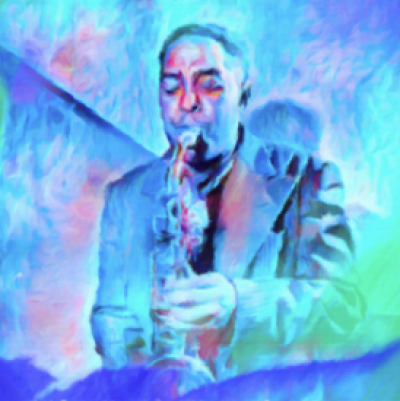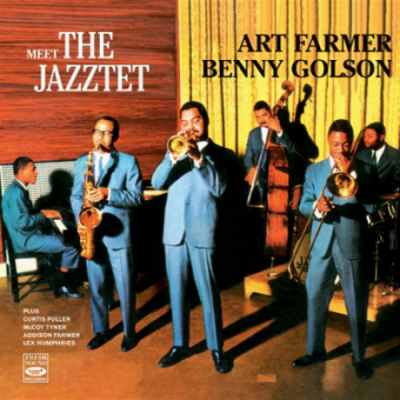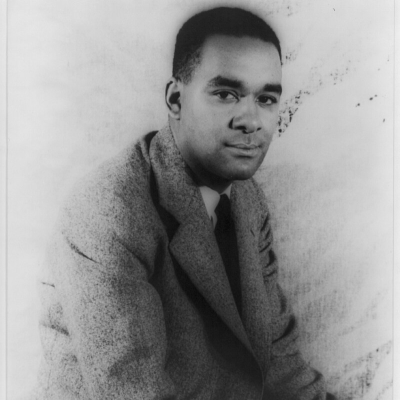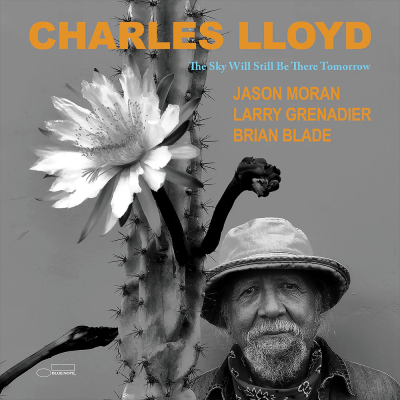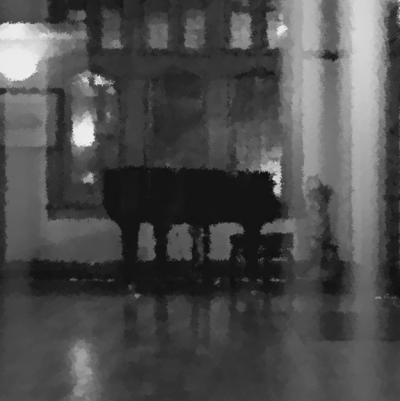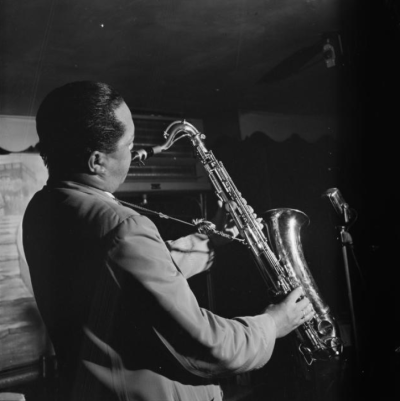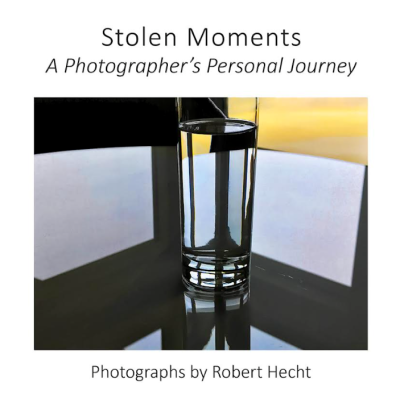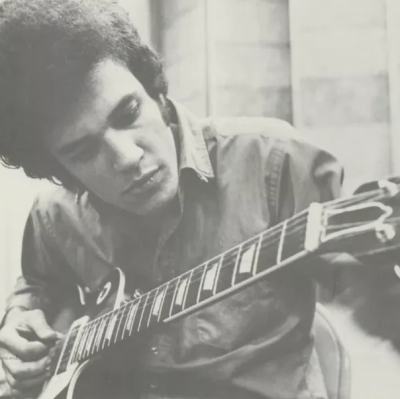.
.
“Oldies,” a short story by Clay Coppedge, was a short-listed entry in our recently concluded 61st Short Fiction Contest, and is published with the consent of the author.
.
.
___
.
.
Curt Teich/from collection of Steven R. Shook/Creative Commons 2.0
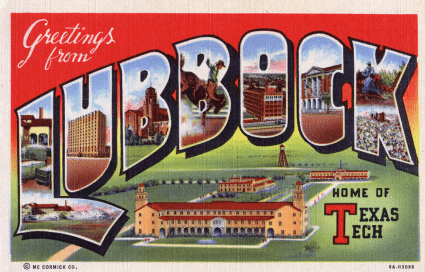
.
Oldies
By Clay Coppedge
.
…..Creed Thomas didn’t know why the bar on the outskirts of town drew him from the highway to its parking lot. He was a social drinker who wasn’t feeling especially social on this pleasant late summer afternoon. He was in his old hometown for a one-day media blitz to promote his book about the Lubbock, Texas music scene called Hub City Hip. The “blitz” consisted of a three-minute appearance on a local TV morning show and a presentation and book signing at a Lubbock bookstore. Neither event had gone especially well, and then he saw this bar.
…..The parking lot was dotted with late model and older pick-ups, a few ordinary Volkswagens, Hondas, Toyotas, and one Mercedes. No fights in the parking lot. If Ann were there, she would assure him that an “unseen force” was drawing him into this speck of the universe for a specific reason. But she was back in Austin, earning a couple of paydays since Creed wasn’t, and no doubt enjoying a day to herself. “There’s nothing mystical going on here,” Creed said aloud. “I just need a fucking drink.” Then he walked inside the bar.
…..The place was either half empty or half full, depending. It was a nice enough place, settling somewhere between seedy and trendy without being either. Posters of Buddy Holly, Willie Nelson, and several of the musicians Creed had written about in his book lined the walls along with framed autographed photos of former Texas Tech football and basketball players. The sound system leaned toward classic rock and oldies. Tom Petty’s “American Girl” was playing as he entered. A bandstand, empty except for a set of drums, filled up a far corner. He took a seat at the bar and ordered a vodka on the rocks. The first swallow lit him up from the inside as Warren Zevon delivered an ode to the “Werewolves of London.” In his mind Creed changed the lyrics to “Werewolves of Lubbock” and settled in. The second swallow brought with it a more relaxed perspective on what he had thought was going to be a triumphant homecoming.
…..The day had started with a preview of the book signing and a review in the local paper. Creed, an old newspaper guy, had expected to find a headline of the Hometown Boy Makes Good variety. Instead, the review could have been headlined Hometown Boy Makes Mediocre. The reviewer concluded, “For people who like this kind of thing, this is the kind of thing they like.”
…..The TV interviewer clearly had not read the book and seemed puzzled by Creed’s description of it. The Big Event—the bookstore presentation and book signing at a south Lubbock mall—drew a couple dozen people, about half of them old classmates. At the end of his brief presentation and a smattering of applause, a former classmate whose name he couldn’t remember asked him why he thought so many good musicians and songwriters came from Lubbock. It was always the first question anyone asked about the book.
…..“Nothing else to do,” was Creed’s default reply. “They had a lot of time to practice.”
…..A younger woman in a Texas Tech sweatshirt stood up to say she was tired of hearing that and, besides, there were plenty of things to do in Lubbock. Her comment drew about the same applause as Creed’s presentation.
…..“Well, you’re right. I know that.” Creed said, scrambling. “I’m talking about the Lubbock of fifty years ago. Lubbock didn’t even have bars or liquor by the drink or anything like that when I was here, or when the people I wrote about lived here. We had Rimrock City, Prairie Dog Town, Loop 289, and a couple of community centers. I left a couple of years after the tornado in 1970. It’s a different place now.”
…..No one said anything. No more questions from the audience either. Creed concluded swiftly and thanked everyone for coming. About half of the audience lined up for the book signing, including the woman who had jumped to the defense of her hometown. She emphasized that she was buying the book for her mother, not herself. “My mother warned me about you. She said you were a smartass and a troublemaker. That’s what she said. She said trouble follows you.”
…..“Well, she obviously knew me.” Creed smiled but she didn’t. “I’m just a mild-mannered reporter now, or at least I was until mild-mannered reporters went out of style. At least she’s buying my book! Who’s your mom?”
…..“None of your business.”
…..“Well, tell her I said Hi.”
…..Just then two of his former classmates got into a fight—an actual fistfight—near a display rack of best sellers by the cash register. Rex Hawkins, who had once aspired to be a peace-loving hippie but failed badly, was duking it out with Johnny Sampson. Johnny wore a t-shirt with a big peace sign on the front. Rex called him a “peace queer.” Rex wore a red cap urging America to regain its former greatness. Johnny called him a “fascist piece of shit.” Then they went at it, geezer style. Creed’s money was on Rex, who had been battling the world and the people in it ever since first grade. The fight lasted as long as it took both men to become winded, half a minute at the most. Two mall cops showed up and escorted his old dudes away.
…..“Lubbock or leave it!” Johnny yelled to Creed as he left, a reference to an old bumper sticker that had been popular back in the day.
…..Rex shot Creed the bird and shoved a mall cop out of the way as he left. Creed turned to what was left of his audience. “Never a dull moment, huh folks?” Nobody said anything. “And to think, I used to drop acid with both of those guys!”
…..He signed a couple more books and that was it—the blitz was over. “You sure draw a rowdy crowd,” the bookstore manager told him. “Thanks for coming. I think.”
…..Creed had realized at that point that he was officially a stranger in his former hometown. His parents were long gone, and he wasn’t in close contact with anybody still living in Lubbock. He left the mall and drove south, through the old neighborhood and past the athletic fields and baseball diamonds of his youth. He had a hundred CDs in his glove box, but he chose the radio. Some of his best memories from Lubbock were of driving around Loop 289 or heading out on the Caprock and listening to radio stations gain and fade in the night. Life was a movie then, and all they needed was a soundtrack, a theme song to convince them they weren’t wasting their time. In those days, the radio always came through, but not today. Modern country and modern pop. Syrupy oldies. He drove by the house where he grew up and thought to himself, “Yep, there it is” and nothing else.
…..Restless and out of sorts, he was headed back to the hotel when he saw the bar and pulled into the parking lot.
…..Now Creed nursed his drink and glanced at a baseball game on a big screen TV. He noticed a man about his age sitting a few barstools away. He looked familiar, like an actor you saw thirty years ago but can’t quite place. Creed listened closely when the bartender approached the man and said, “Another Corona, Quinn?”
…..“Sure, why the hell not?”
…..Quinn…Quinn…The name, the laconic, smug tone of voice, and the face, once handsome, no doubt, but etched now with deep Keith Richards-type lines… Quinn Fucking Jackson! Where was his entourage? Creed remembered Quinn as a rich kid who dated cheerleaders, made all-district teams in three sports, played baseball and football at TCU, and later had a cup of coffee in the Atlanta Braves organization. He was the coolest guy in school. Everybody knew that.
…..In that moment, Creed also recalled how the coolest guy in school was also a notorious crybaby. Quinn would break out in tears after a slight rebuke from a teacher, or over a perceived injustice on the playground. He once started crying on the basketball court, during a district game no less, when the official called him for traveling. Another time he started sobbing in choir class for reasons Creed never understood. A kid named Sammy Romero began singing the opening lines of the sad country song, “Oh, it’s crying time again…”
…..That drew a few nervous giggles until Quinn blurted, “Shut up, Mexican!” and the room went quiet. The choir director sent Sammy to the principal’s office. He ordered Quinn to “get a grip.” Then the class went back to singing songs from South Pacific. Of all the things to remember, Creed wondered why he flashed back to that.
…..“Hey…Creed. Creed Thomas? Is that you?”
…..Creed twisted his barstool to face Quinn. “Why, it’s Quinn Jackson! The All-American Boy!” Creed tried to sound surprised and delighted. “Fancy meeting you here.”
…..Quinn motioned him over. “Here. Have a seat. I might not have recognized you, but I saw you on TV this morning. Hell, you haven’t changed at all. You still have those John Lennon glasses and you’re as skinny as you ever were.” Quinn pinched his belly. “I’ve put on a few pounds since then. Whatcha drinking? Whoa, vodka! Hard core.” He called to the bartender, “Larry, another vodka for this guy. Make it the good stuff.”
…..And so they drank and offered updates on old friends and former teammates and marveled at the relentless passage of time. Quinn said he had worked in real estate, invested in the stock market, made plenty of money, and now played a lot of golf. Creed related how he’d knocked around for ten years after he left Lubbock and spent the next thirty years working for various newspapers and magazines.
…..“Hey, Creed. Remember the time a big gust of wind came along and blew you off the pitcher’s mound?”
…..Creed could have reminisced all day and been just as happy to never recall that moment. “Well, yeah, now that you mention it…”
…..“But you were fast. I remember that. The Braves told me I wasn’t fast enough to play the outfield. Not fast enough for the NFL…Remember that time in regionals when you got thrown out at home and we lost? You were just half-fast that day. Ha!”
…..“Yep. Another great moment in Lubbock history we could have skipped.”
…..“Married?” Quinn asked. He smirked and cocked an eyebrow. “Gay?”
…..“Married thirty-three years and counting. One daughter living in California and making about ten times more money than I ever made. Ann and I do okay. We usually find a way to make ends meet. How about you?”
…..Quinn didn’t answer right away. “My wife died five years ago. Just up and died. No one saw it coming. It’s…part of what happens when you get older. There were hundreds of people at her funeral. I don’t remember you being there. I guess you didn’t know.”
…..The news rattled Creed. How could bad things happen to Quinn Jackson? He was about to say he was sorry when the Ray Charles version of “It’s Crying Time Again” came through the speakers.
…..“Jesus. That fucking song.”
…..“It’s a classic,” Creed said, hoping to skip another not-so-great moment in local history.
…..Quinn took a deep swig of beer and fixed a sour expression on Creed. “Yeah, yeah. It’s a fucking classic, all right. People used to sing that damn song to me every time I’d cry. Fucking Sammy Romero. He started it. My old man used to say to me, ‘Dry up or I’ll give you something to cry about!’ He finally did. Son of a bitch died five years ago.” Quinn held up his bottle and called to the bartender, “One more, Larry.”
…..“My parents are gone too,” Creed said. “It’s a hard thing.”
…..“Sure it is. But you expect it with your parents. You know it’s probably going to happen to them before it happens to you. But you don’t expect it to happen to your kid, like with my son. Drug overdose. He was going to be the starting quarterback at Lubbock High, but he started running with all these ‘cool’ guys and they got him into it. Same thing with my daughter. She got busted last year for selling fentanyl… Now she’s in rehab. Again. At least she didn’t die. Not yet.”
…..The next song to come over the sound system was the old anti-drug anthem “Kicks” by Paul Revere and the Raiders. Weird, Creed thought. He was getting his soundtrack, whether he wanted it or not.
…..“Damn, Quinn. I’m sorry. I had no idea about any of that.”
…..“I think God tries to even things out in the long run. I had everything going my way for twenty, thirty years. So God decided to even things out, humble me a little bit. Give me something to cry about, like my old man said.”
…..Quinn downed most of the beer he had just ordered and signaled for another one. “You know, sometimes I think back to you and your dopehead buddies. That’s where all this drug crap started. Peace, love, and dope. Man, you guys were the coolest.”
…..“We were lucky, Quinn. We didn’t have pharmaceutical companies and doctors pushing opiates. It was a different time. Besides, we never did any hard drugs. Nobody was into heroin.”
…..That was a lie. Rex Hawkins got busted for smack a year after he graduated high school. The judge offered him a deal: join the army or go to prison for six years. Rex chose the army. He came back from Viet Nam a full-fledged junkie, but he kicked the habit with the help of methadone and God, or so Creed had been told. That afternoon at the bookstore was Creed’s first verified sighting of Rex Hawkins since high school. Creed was nearing the end of his second drink, trying to figure what would constitute a graceful exit.
…..“Shit, Creed. I just remembered something. I never liked you. I never liked those shitheads you started running around with either. You should have stuck to playing the infield.”
…..Same old Quinn Jackson, Creed thought, just drunker. He pulled a twenty from his wallet and dropped it on the bar. “Quinn, I truly am sorry for what you’ve had to go through. But I need to hit the road. I hope you have somebody to drive you home.”
…..Quinn was yelling now. And crying. “Yeah, that’s right. Get the fuck out of here, Creed! We’ve done fine without you and your dope head friends. We don’t need your kind around here. We never did!”
…..People were staring. The bartender pointed to Creed. “You. Out!
…..Quinn was obviously a regular here. Creed knew he should get out while the getting was good, but not without saying, “Hey, I’ve been kicked out of better places than this. Besides, all I did here was get yelled at.”
…..“You want more than that?” Quinn was making motions like he intended to get off his barstool.
…..Creed wanted to say, “Dry up or I’ll give you something to cry about” and would always be grateful that he didn’t. He dropped a twenty on the bar and walked out.
…..“You made him cry!” a waitress chided as he got to the door.
…..“He’s got things to cry about. I don’t. ”
…..Creed got in his car and headed straight to the hotel, took a long cold shower, dressed, and went downstairs for a sandwich and a few cups of coffee. He called his daughter, who didn’t quite believe he was just calling to say he loved her. Then he called Ann. “Hope you’re not having too good a time by yourself, sweetheart. I’m heading home. I’ll be there by midnight.”
…..“But you’re booked at the hotel for another night. What’s wrong?”
…..“The universe is steering me back to you. That’s all. You don’t have to wait up.”
…..Ann was always a wee bit psychic. “You didn’t get in a fight, did you?”
…..“Not exactly. But I did get kicked out of a bar. No big deal. And there was a fight at the book signing, but I had nothing to do with that. I’ll tell you all about it when I get home.”
…..As he settled into his drive back to Austin, out where the radio stations gain and fade in the night, Creed decided the universe had sent him to that bar to help him realize how lucky he was. He spent the next few miles counting his blessings and was at number fourteen when another Ray Charles oldie came across the airwaves.
…..Creed just had to sing along: “Hit the road, Jack. And don’t you come back no ‘mo, no ‘mo, no ‘mo, no ‘mo. Hit the road, Jack. And don’t you come back no ‘mo.’”
.
.
___
.
.

Clay Coppedge has worked for newspapers in Central Texas as a sportswriter, feature writer, columnist, and reporter. His work has appeared in a wide range of magazines, including Acres USA, Austin Sun,A ustin Chronicle, Big Bend Literary Magazine, Elysian Fields Quarterly, Field & Stream and others. He’s also written five books of Texana for History Press and Loaded South: A Taxi Memoir. He lives and works just outside of Walburg, Texas.
.
.
Listen to the 1965 recording of Ray Charles singing Buck Owens’ “Crying Time.”
.
.
___
.
.
Click here to read “Equal,” Chris Simpson’s winning story in the 61st Jerry Jazz Musician Short Fiction Contest
Click here for details about the upcoming 63rd Jerry Jazz Musician Short Fiction Contest
Click here to subscribe to the Jerry Jazz Musician quarterly newsletter
Click here to help support the continuing publication of Jerry Jazz Musician (thank you!)
.
.
.








